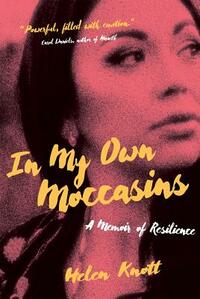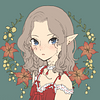You need to sign in or sign up before continuing.
Take a photo of a barcode or cover
dark
emotional
hopeful
informative
inspiring
reflective
sad
tense
slow-paced
challenging
dark
emotional
informative
inspiring
sad
tense
medium-paced
Graphic: Drug abuse, Drug use, Misogyny, Pedophilia, Racism, Rape, Self harm, Sexism, Sexual assault, Suicidal thoughts, Suicide
challenging
dark
emotional
hopeful
informative
inspiring
reflective
sad
tense
medium-paced
Powerful memoir from rising Indigenous voice in Canada. Knott is Dane Zaa and Cree; both sides of her family have been in Peace River territory for, obviously, a long long time. My family immigrated from Europe and I'm first-generation Canadian. We grew up in the same hometown. She didn't have any non-Indigenous friends in high school; I didn't have any Indigenous. Separation is de facto if not de jure.
Reading this memoir demonstrated how many experiences we shared in common, yet how different our lives were. We both were huge readers growing up, with trips to the library and voracious reading one of the few things that got us through, and always wanted to be writers. We both worked the same job at 17, working traffic control / 'flagging' on construction sites in oil patch country, which is most of the time an incredibly male-dominated, toxic environment rife with sexual harassment - especially when you are 17. Alongside these were common experiences of high school teachers, local events, etc. I identified with a lot of what she shared. One of the biggest key differences in our experience, however, is the ways her Indigeneity meant experiencing addiction and emotional, physical, and sexual violence in her family, school, and community life from day 1 that I have not had to experience in the same way at all. She also goes through a process of learning and practicing more of her Dane Zaa and Cree traditions, which is really meaningful and powerful in her life. Both of these things a large focus of the book, simply because it has been so woven into her life and experiences. Her healing process is hard, beautiful, and a privilege to read.
Her open and vulnerable expression of all her experiences and identities comes through powerfully and clearly. I really appreciated the tell it like it is, real, descriptions of her experiences. As she says, "I did not write this book so that people can learn how to humanize Indigenous women and gain context for the violence that seems to fill our lives. ... As Indigenous women, we sometimes must unapologetically write for ourselves. I wrote this for us."
Reading this memoir demonstrated how many experiences we shared in common, yet how different our lives were. We both were huge readers growing up, with trips to the library and voracious reading one of the few things that got us through, and always wanted to be writers. We both worked the same job at 17, working traffic control / 'flagging' on construction sites in oil patch country, which is most of the time an incredibly male-dominated, toxic environment rife with sexual harassment - especially when you are 17. Alongside these were common experiences of high school teachers, local events, etc. I identified with a lot of what she shared. One of the biggest key differences in our experience, however, is the ways her Indigeneity meant experiencing addiction and emotional, physical, and sexual violence in her family, school, and community life from day 1 that I have not had to experience in the same way at all. She also goes through a process of learning and practicing more of her Dane Zaa and Cree traditions, which is really meaningful and powerful in her life. Both of these things a large focus of the book, simply because it has been so woven into her life and experiences. Her healing process is hard, beautiful, and a privilege to read.
Her open and vulnerable expression of all her experiences and identities comes through powerfully and clearly. I really appreciated the tell it like it is, real, descriptions of her experiences. As she says, "I did not write this book so that people can learn how to humanize Indigenous women and gain context for the violence that seems to fill our lives. ... As Indigenous women, we sometimes must unapologetically write for ourselves. I wrote this for us."
emotional
emotional
inspiring
reflective
sad
slow-paced
challenging
dark
emotional
medium-paced
This memoir is packed; with trauma, abuse, hurt, and somewhere in there, a little bit of hope. Knott presents her life as it was, being blunt and not shying away from what it has given her. She also brings the reader along for some of it, though jumping from event to event in a somewhat blurred fashion. Overall, I really enjoyed the way it was presented and look forward to reading her next one.
Graphic: Addiction, Drug abuse, Emotional abuse, Racism, Rape, Self harm, Sexual violence, Violence
Moderate: Child abuse, Physical abuse, Suicidal thoughts, Toxic relationship, Grief
Minor: Body horror, Cursing, Abandonment
challenging
dark
emotional
sad
medium-paced
Memoir of indigenous woman and journey to heal from SA and drug addiction. A lot of SA.
A bit confusing at times- timeline jumps, references to a particular traumatic event in vague terms but several specific ones made me wonder if the event had already been described, descriptions of her parents'/grandparents'/ stepparent's? lives too. Most names have been changed, but one friend is referred to exclusively as HER.
Fast read, but painful topic. Much trauma to overcome, for both herself and her family. One of those that makes you lose a little more hope for humanity. She came out the other end with a lot of work and love. But wow are men awful.
Was surprised that she was covering up a drug addiction while counselling other women who were seeking help for drug addictions. This is the second book by a woman who was doing the thing she was advising others against. Weird that it happened twice.
A bit confusing at times- timeline jumps, references to a particular traumatic event in vague terms but several specific ones made me wonder if the event had already been described, descriptions of her parents'/grandparents'/ stepparent's? lives too. Most names have been changed, but one friend is referred to exclusively as HER.
Fast read, but painful topic. Much trauma to overcome, for both herself and her family. One of those that makes you lose a little more hope for humanity. She came out the other end with a lot of work and love. But wow are men awful.
Was surprised that she was covering up a drug addiction while counselling other women who were seeking help for drug addictions. This is the second book by a woman who was doing the thing she was advising others against. Weird that it happened twice.
Location: Canada
Representation: Indigenous cast
Content warnings: please check StoryGraph because there are many & they are graphic
Quick review: This book is both so informative and so heartbreaking. Helen's life is scarred entirely by rape, sexual assault, addiction, and just trying to survive in a world that makes it so hard for Indigenous women. I learned so much reading this, and highly recommend it.



